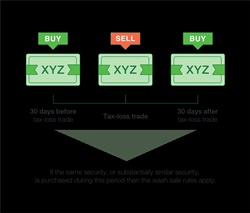
Table of Contents
Defining Industry
An industry is a collection of businesses engaged in producing, Manufacturing, or handling a particular type of product or service. It transforms Raw Materials into products that are more valuable to the general public.

Individual organizations are categorized into industries depending on their primary revenue streams. This creates industry groups that can be used to categorize businesses.
Types of Industry Sectors
Numerous industrial categories are grouped together as sectors. Economists use sectors to categorize economic activity by combining related businesses. There are usually only one or two major industries in developing and emerging economies. On the other hand, developed countries have a more diverse representation of all industries.
Sectors are often categorized into four groups, such as:
- Primary
- Secondary
- Tertiary
- Quaternary
Primary Industries
Companies involved in the extraction and gathering of natural goods from the Earth are considered part of the primary sector. Primary sector companies often use natural resources and sell them to consumers or enterprises. Processing and packaging of raw materials also come under this sector. Agriculture, forestry, fishing, mining, quarrying, and mineral extraction are all examples of industries that fall under this category. This sector has more employment in emerging economies than in developed countries.
Secondary Industries
This industry is sometimes referred to as the manufacturing industry, takes primary industries' raw materials and turns them into finished goods for sale or creates Capital equipment to manufacture consumer and non-consumer commodities. This sector includes automobile manufacturing, textile manufacturing, chemical engineering, aerospace space, shipbuilding, and energy utilities.
Secondary Industry is classified as large-scale and small-scale industries. Large-scale Industry often involves wide capital investments in equipment and machinery, services a large and diverse Market, has a complex Industrial Organization, and employs experienced specialized workers. Some examples are oil refining, steel and iron manufacturing, motor vehicles and heavy machinery, cement, nonferrous metal refining, meat packing, and hydroelectric power generation. Manufacturing products that are not durable or need a little capital investment in plants and equipment are examples of small industries.
Talk to our investment specialist
Tertiary Industries
It comprises industries that provide services or generate revenue without creating tangible goods. Retailers, entertainment companies, and financial institutions are all part of the tertiary sector. This sector is usually a mix of private and public enterprises in the free market or mixed economies. Enterprises in the tertiary sector provide services to businesses and customers by selling the commodities that companies in the secondary sector produce.
Banking, finance, insurance, Real Estate, and real estate services are some of the businesses in this sector. Other businesses in this sector include wholesale, retail, and resale trade; transportation and information and communication services; professional, consulting, and personal services; tourism; hotels; restaurants; and entertainment, repair, and maintenance services.
Quaternary Industries
Companies in the quaternary sector participate in intellectual services such as technological advancement and invention. This Industry includes research and development that leads to advances in processes such as manufacturing. Before the advent of the quaternary sector, the companies and firms that comprised it were considered to be a component of the tertiary Industry.
The quaternary sector employs information and technology to innovate and improve processes and services, hence contributing to the nation's economic development efforts. Research and development, Information Technology (IT), education, and consulting services are some of the organizations' business operations.
Conclusion
An industry is a grouping of businesses, individuals, and organizations that produce goods and services for a specific market. The industrial sector is regarded as the most important contributor to economic development. It also allows the country to manufacture a wide Range of consumer items in huge volumes and at low prices.
All efforts have been made to ensure the information provided here is accurate. However, no guarantees are made regarding correctness of data. Please verify with scheme information document before making any investment.












